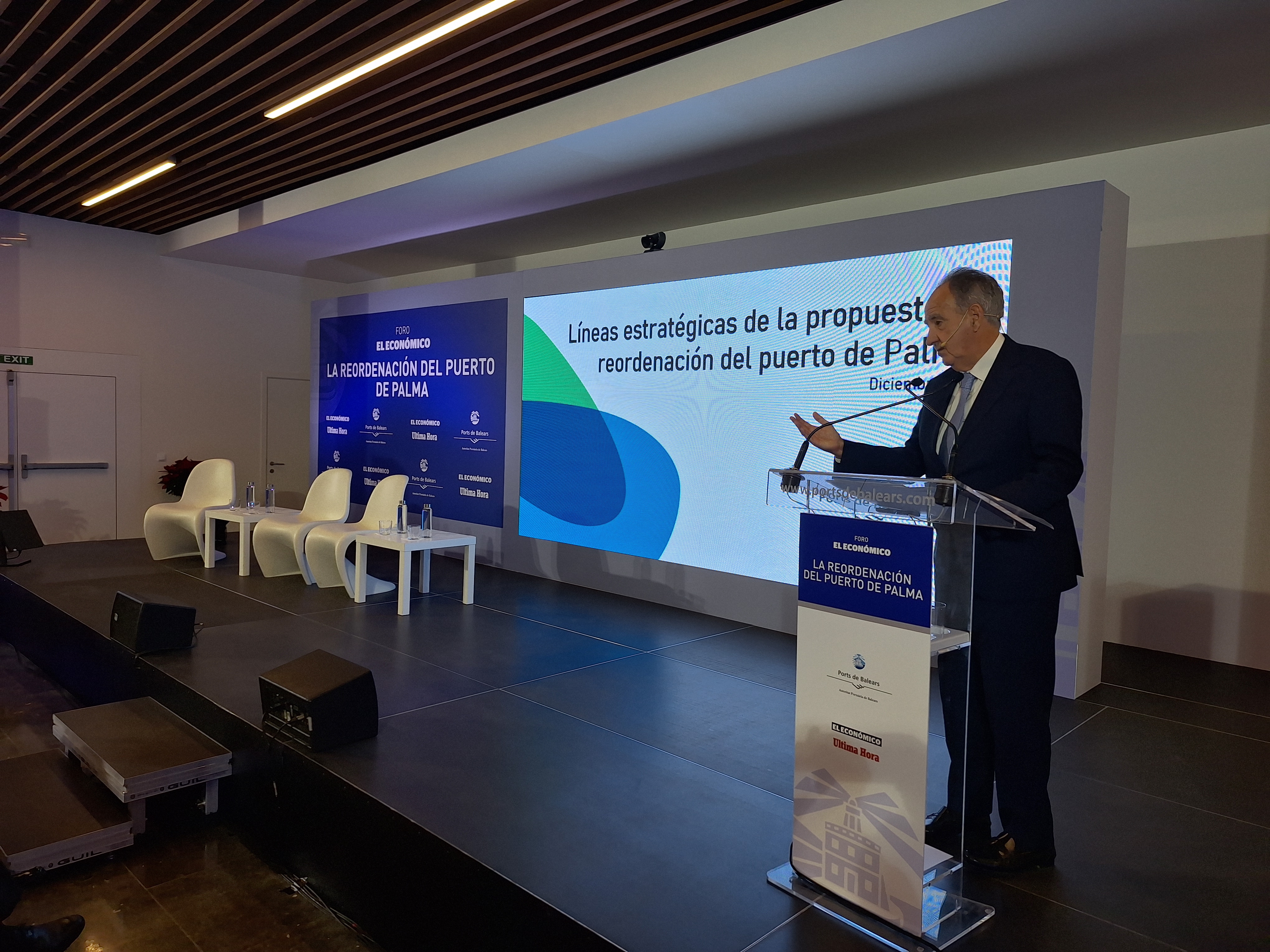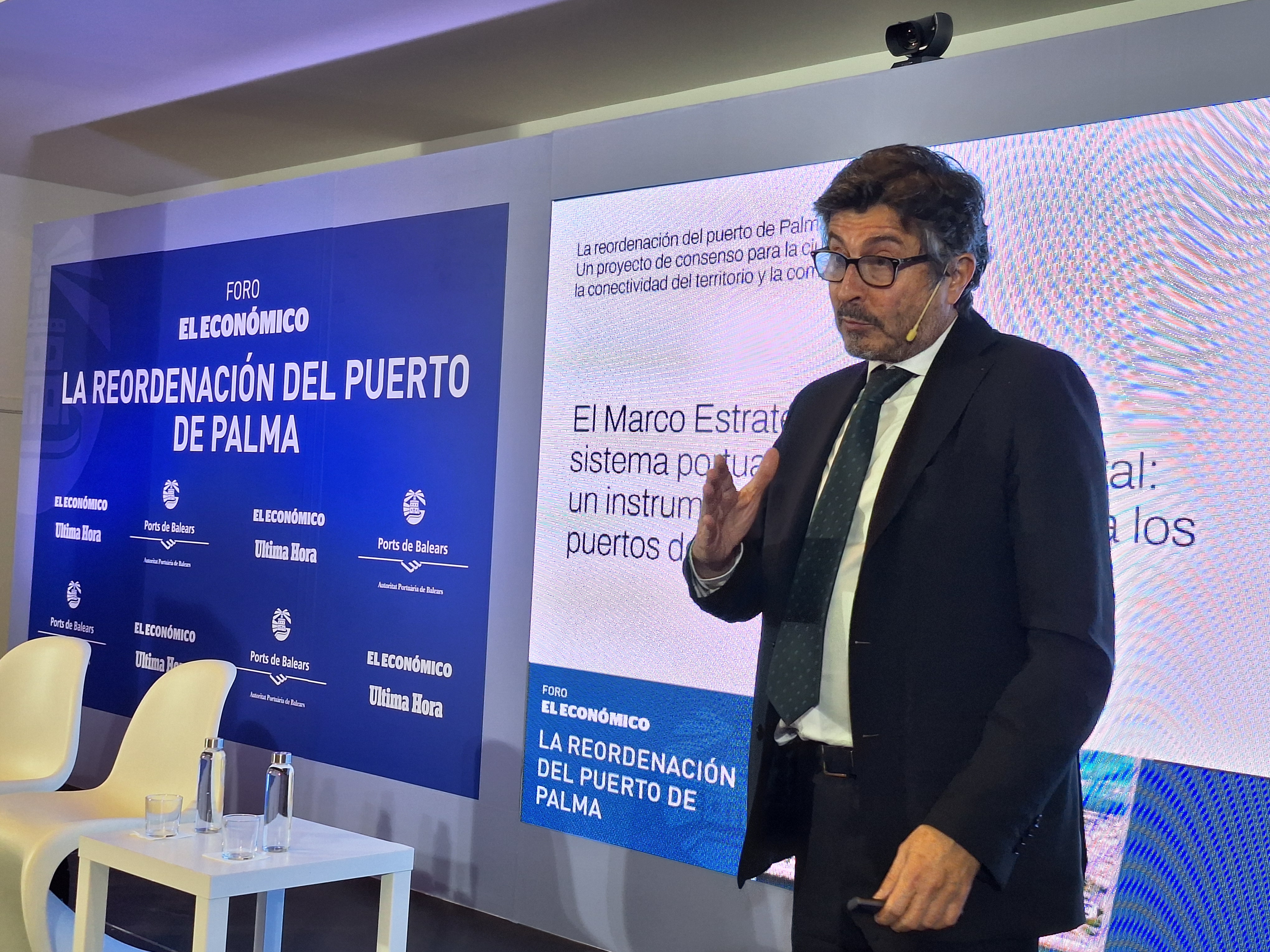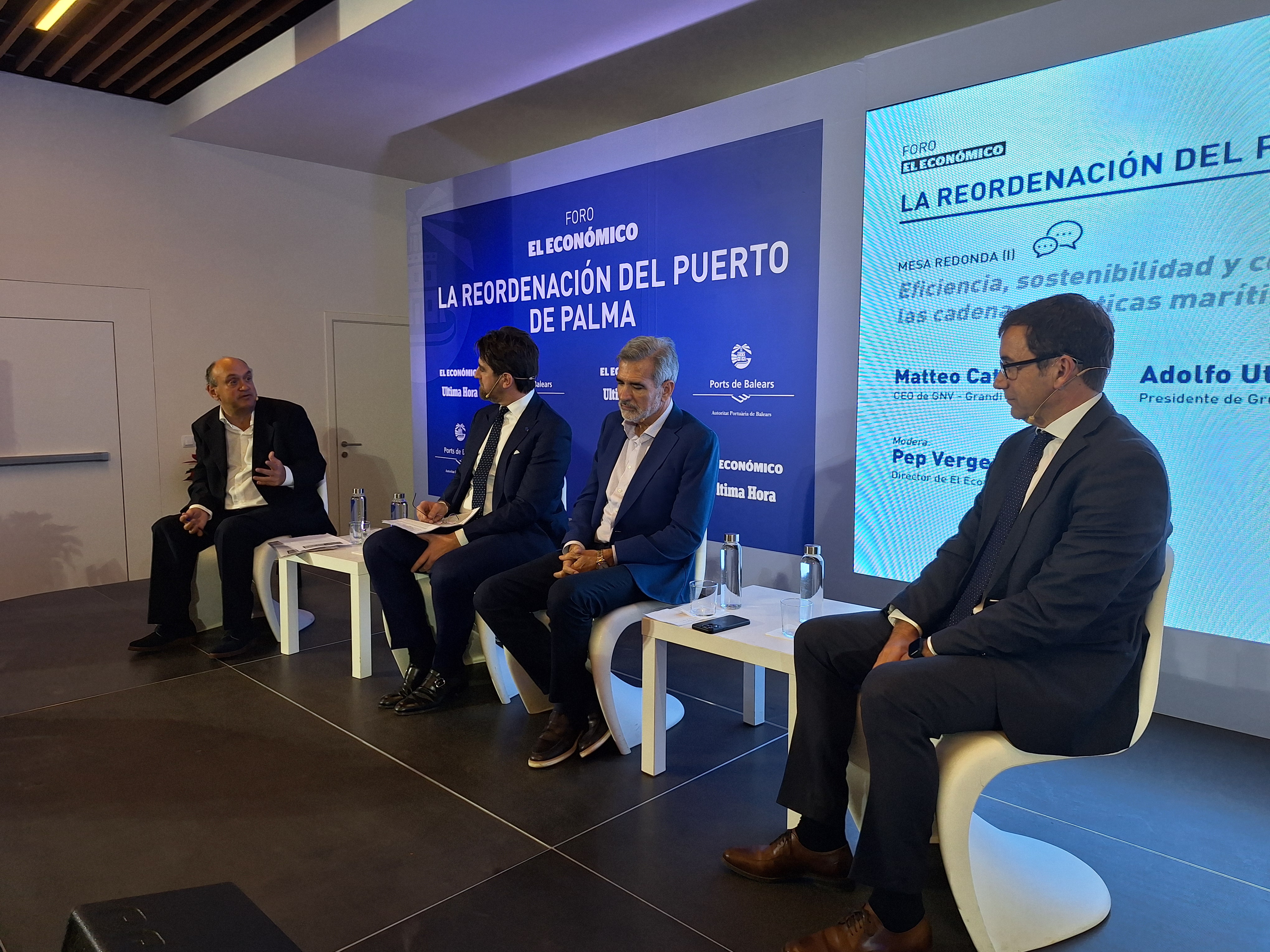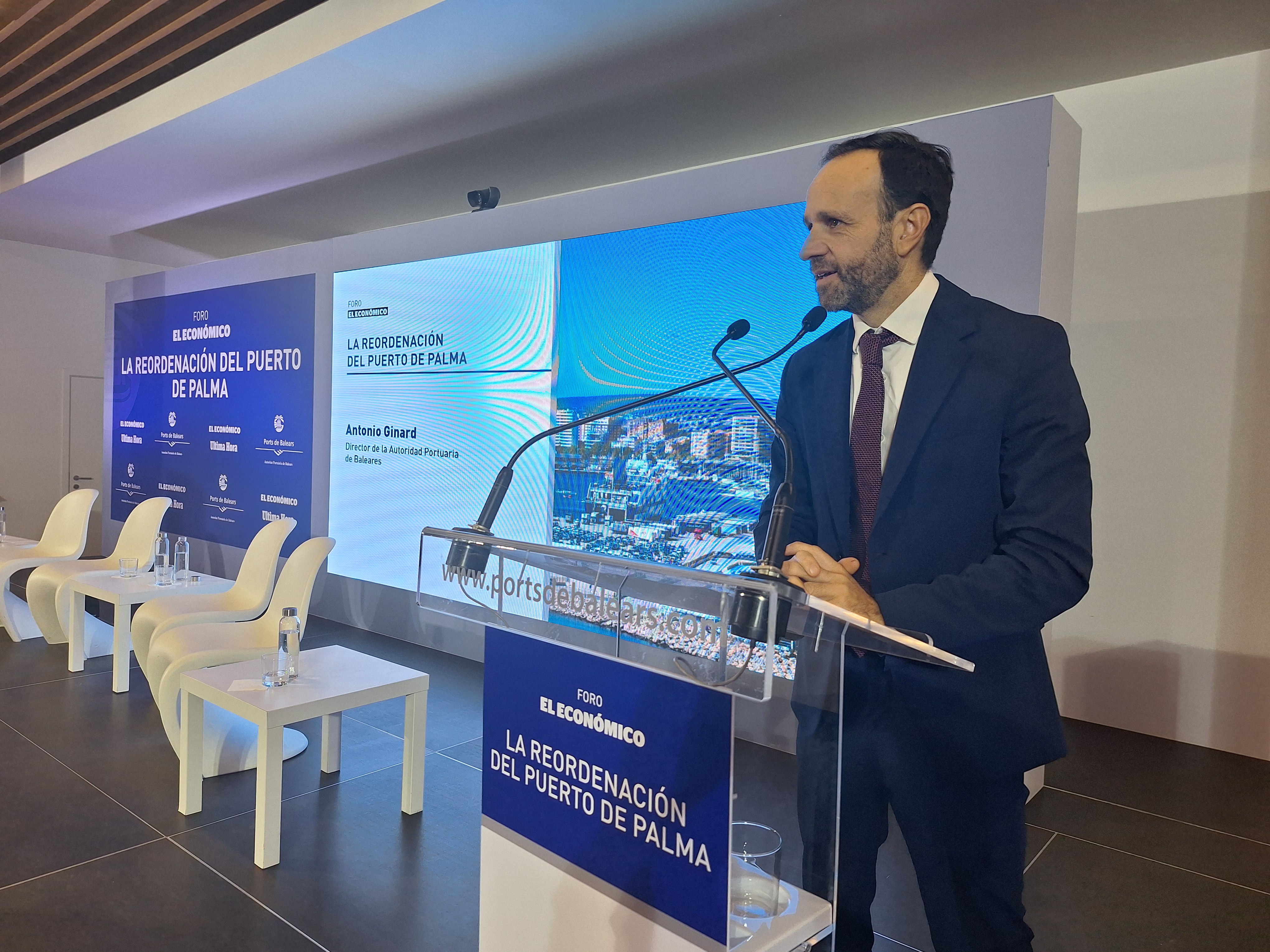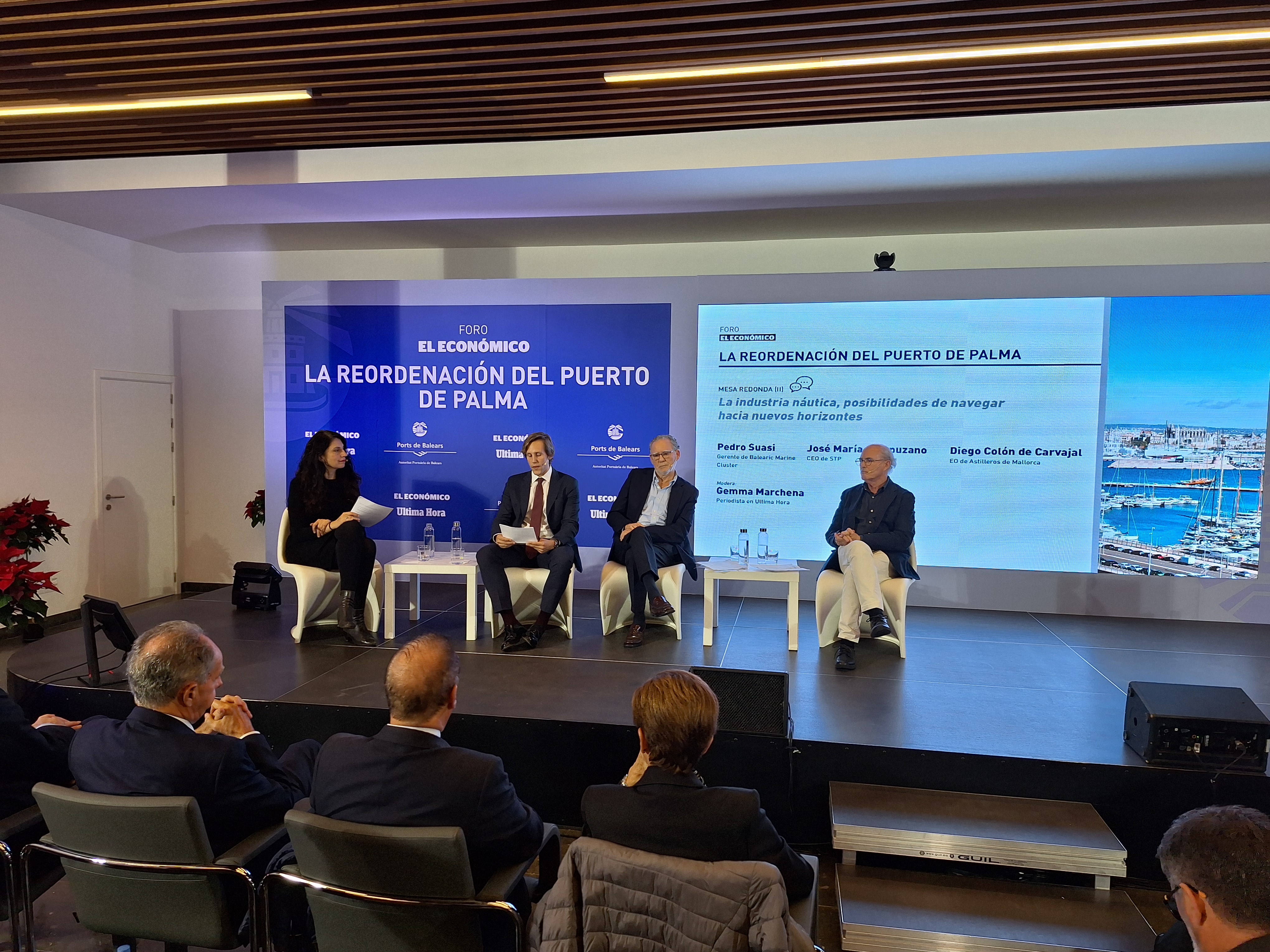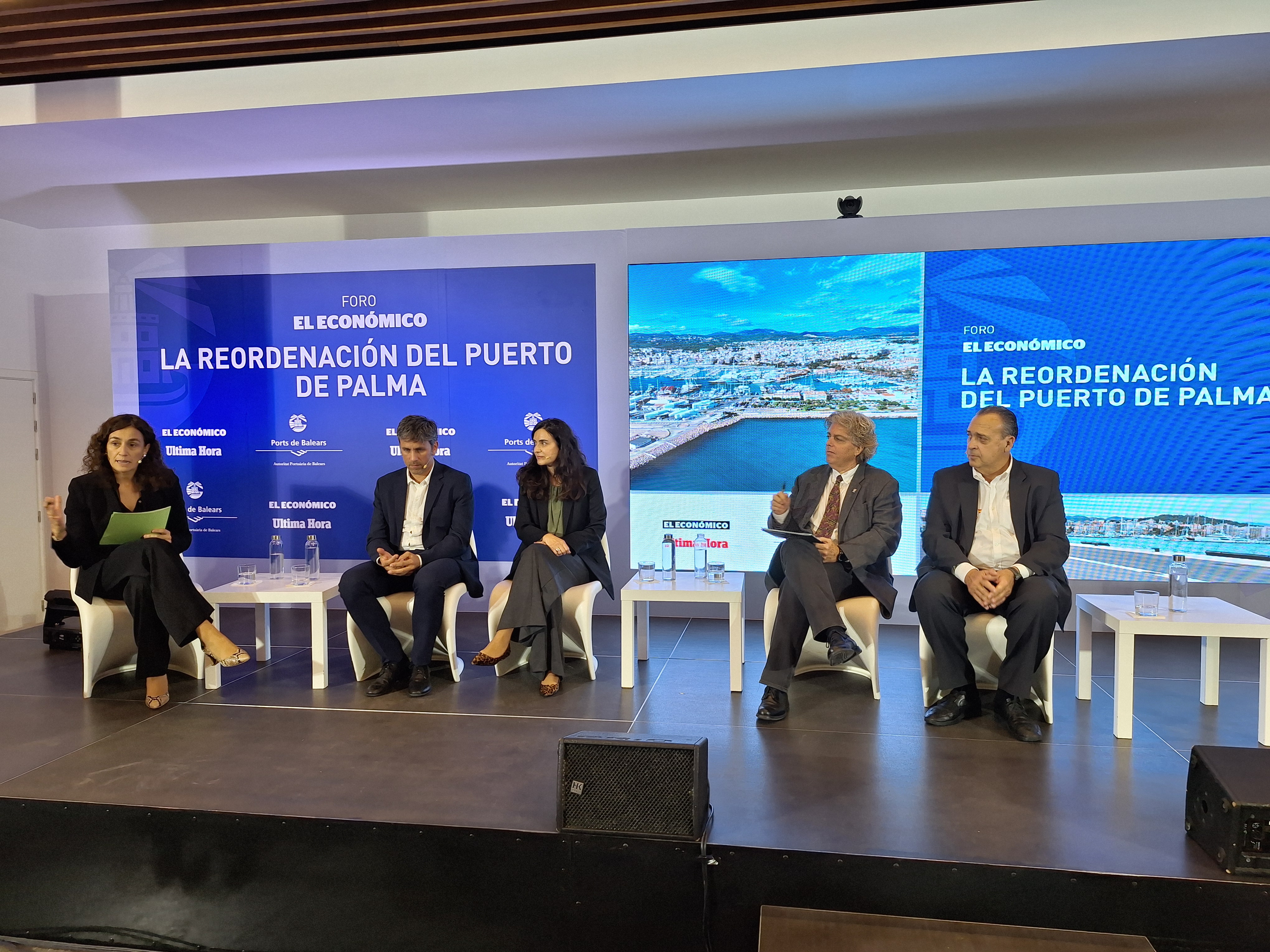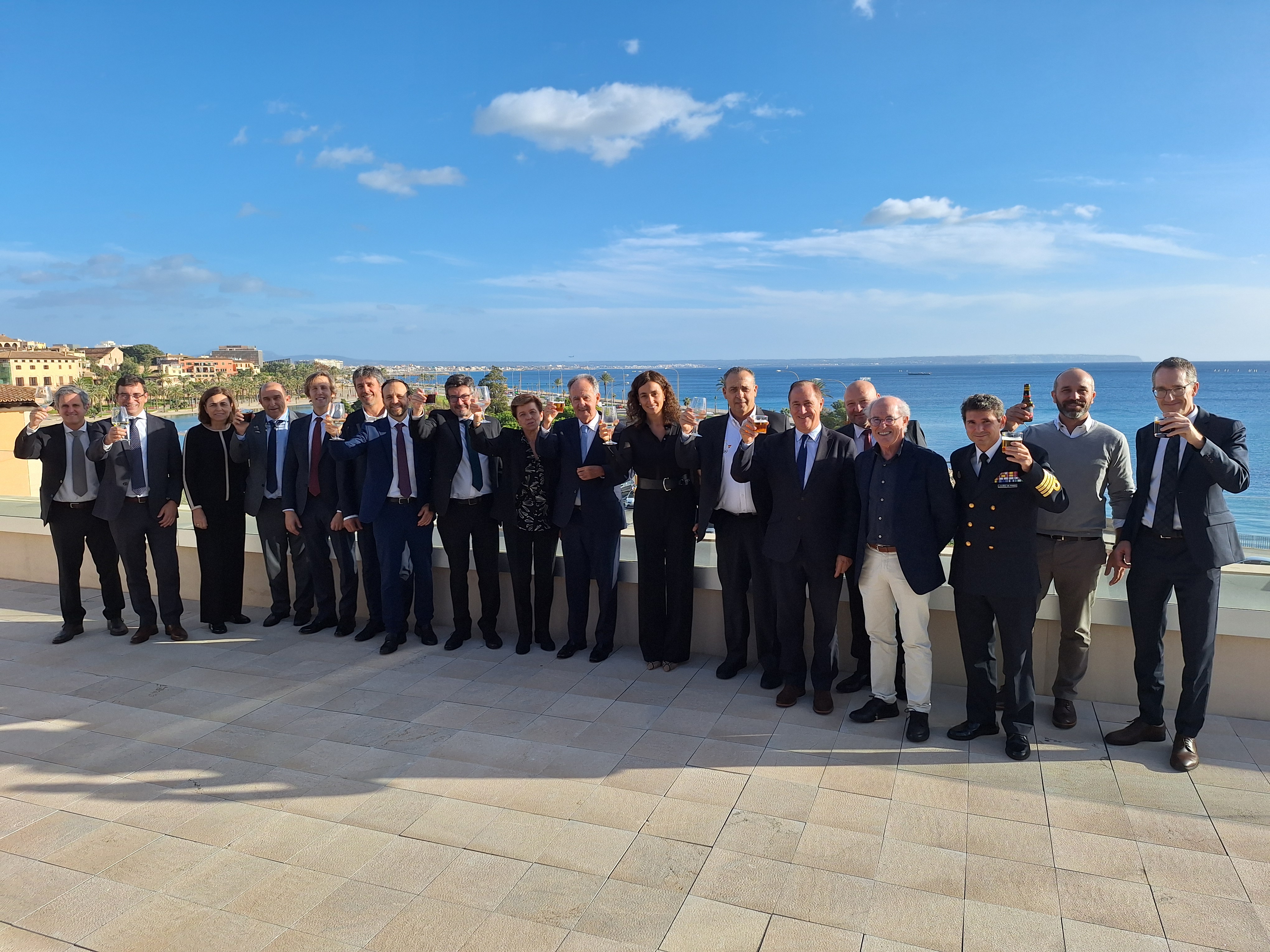
The Port of Palma as a consensus-based strategic axis for urban integration and sustainability
Palma
04/12/2024- Port-city
- Transport and infrastructure
- Socio-economic development
The future of the Port of Palma took the spotlight at this morning's forum held at the institutional head offices of the Port Authority of the Balearic Islands (APB), which was organised by Grupo Serra's specialised newspaper, El Económico. Under the slogan “A consensus project for the city, economy, territorial connectivity and industrial competitiveness”, the forum explored the opportunities and challenges arising from restructuring this strategic space, with the project already underway.
Bringing together prominent political, business and technical leaders, the event featured keynote speeches that highlighted the port's importance as Palma's economic, social and cultural driving force.
The president of the APB, Javier Sanz, delivered a speech in which he outlined how the port of Palma is to be redeveloped, emphasising the port organisation's commitment to sustainability, urban integration and improved economic competitiveness, as well as the consensus achieved in its approach. During his presentation, Sanz highlighted how this project seeks to balance port needs with the creation of accessible spaces for citizens by promoting cultural, educational and recreational activities in the freed-up areas.
“We want the Port of Palma to serve as a model of sustainability and connection with the city. This project not only responds to the economic and logistical challenges, but also to the need to build a more people-oriented port, which is available to citizens and respectful of the environment,” said the president of the APB.
The Port Authority's objective is to establish the Port of Palma as a global benchmark for innovation, sustainability and competitiveness. To do so, the project includes a reorganisation of port uses, maintaining ferry activity and boosting the nautical industry in the West dock. New urban spaces will also be created for education, culture and sport, which will democratise access to the port. There are also plans to reduce the environmental impact through renewable energies, clean technologies and energy efficiency. Lastly, this project will strengthen the local economy by consolidating key sectors such as maritime transport and ship repair.
A forum to discuss the port's future
The forum also included presentations and panel discussions attended by political and business representatives and those from educational, cultural and sporting bodies. The president of Puertos del Estado (State Ports), Álvaro Rodríguez Dapena, highlighted the strategic role played by the ports as driving forces for sustainable development. The Mayor of Palma, Jaime Martínez, also spoke about the need to integrate the port into the city's urban dynamics, promoting its sustainability and connectivity with the surrounding area.
The panel discussions tackled key aspects such as logistical efficiency, the nautical industry's opportunities and port-city integration. Experts such as Matteo Catani (GNV), Adolfo Utor (Baleària), Pedro Suasi (Balearic Marine Cluster) and Albert Forés (Museu Marítim de Mallorca) contributed valuable perspectives on the future of the Port of Palma.
A consensus-based project focused on the future
The Port Authority of the Balearic Islands conducted a participatory process to define the future of the Port of Palma, where over 65 interest groups put forward their needs and suggestions and reached widespread consensus that reinforces its viability and social acceptance.
The project to redevelop the Port of Palma has become a driving force for transformation that strengthens the city's cultural identity, boosts innovation and meets the sustainability objectives established at local, national and European level. The Port Authority of the Balearic Islands once again confirms its commitment to this vision, promoting an intelligent, sustainable and well-integrated port that adds value to the city, its citizens and the natural environment.
To close the forum, APB director Toni Ginard summarised the most important aspects discussed by the participants and noted that the word ‘consensus’ was the most frequently heard word throughout the day. “This project represents our shared responsibility to convert the Port of Palma into a benchmark, where sustainability, integration and progress work together harmoniously and benefit everyone,” he concluded.


